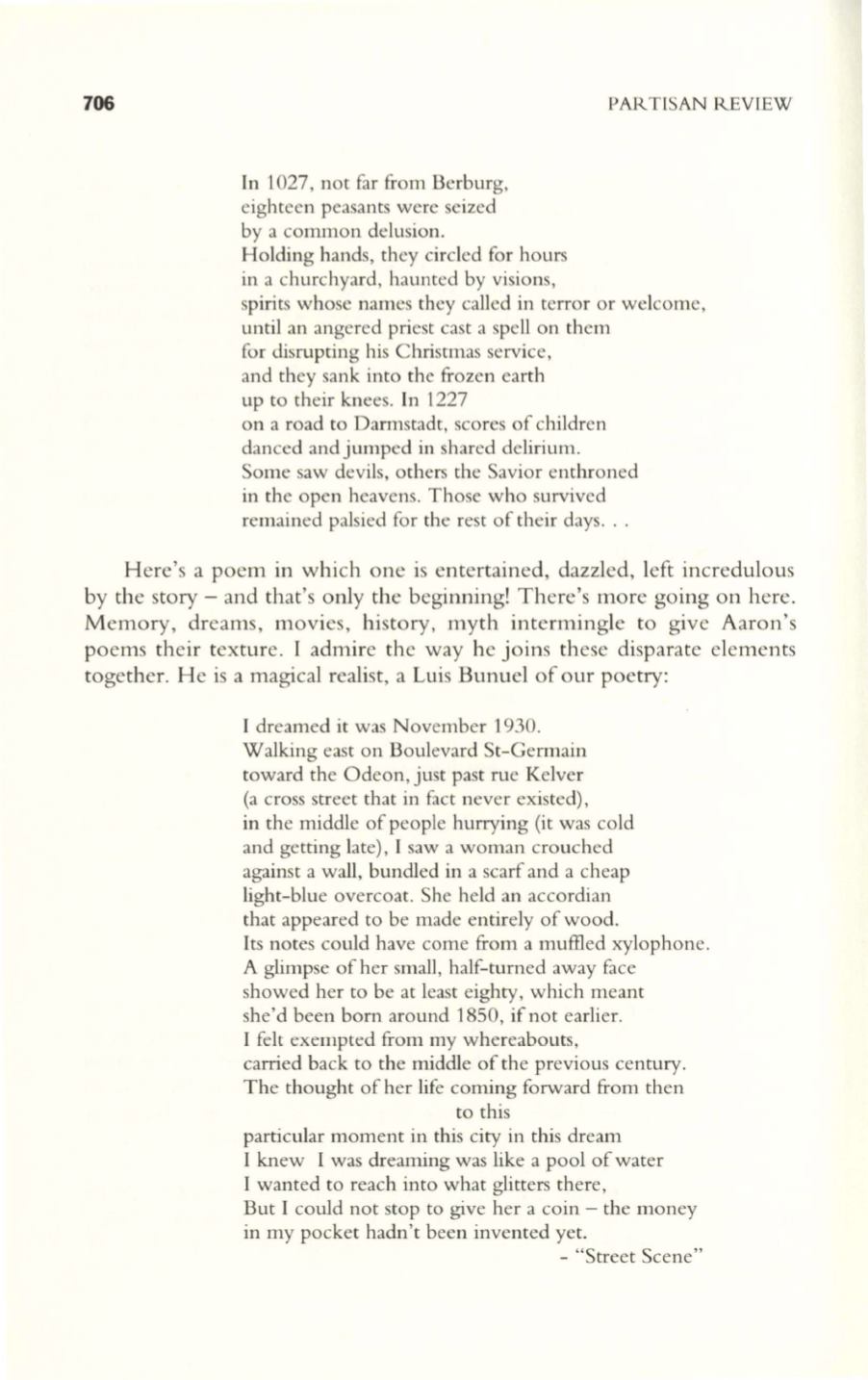
706
In 1027, not far from Berburg,
eighteen peasants were seized
by a common delusion.
Holding hands, they circled for hours
in a churchyard, haunted by visions,
PARTISAN REVIEW
spirits whose names they called in terror or welcome,
until an angered priest cast a spell on them
for disrupting his Christmas service,
and they sank into the frozen earth
up to their knees. In 1227
on a road to Darmstadt, scores of children
danced and jumped in shared delirium.
Some saw devils, others the Savior enthroned
in the open heavens. Those who survived
remained palsied for the rest of their days...
Here's a poem in which one is entertained, dazzled, left incredulous
by the story - and that's only the beginning! There's more going on here.
Memory, dreams, movies, history, myth intermingle to give Aaron's
poems their texture. I admire the way he joins these disparate elements
together. He is a magical realist, a Luis Bunuel of our poetry:
I dreamed it was November 1930.
Walking east on Boulevard St-Germain
toward the Odeon, just past rue Kelver
(a cross street that in fact never existed),
in the middle of people hurrying (it was cold
and getting late), I saw a woman crouched
against a wall, bundled in a scarf and a cheap
light-blue overcoat. She held an accordian
that appeared to be made entirely of wood.
Its notes could have come from a muffled xylophone.
A glimpse of her small, half-turned away face
showed her to be at least eighry, which meant
she'd been born around 1850, if not earlier.
I felt exempted from my whereabouts,
carried back to the middle of the previous century.
The thought of her life coming forward from then
to this
particular moment in this ciry in this dream
I knew I was dreaming was like a pool of water
I wanted to reach into what glitters there,
But I could not stop to give her a coin - the money
in my pocket hadn't been invented yet.
- "Street Scene"


